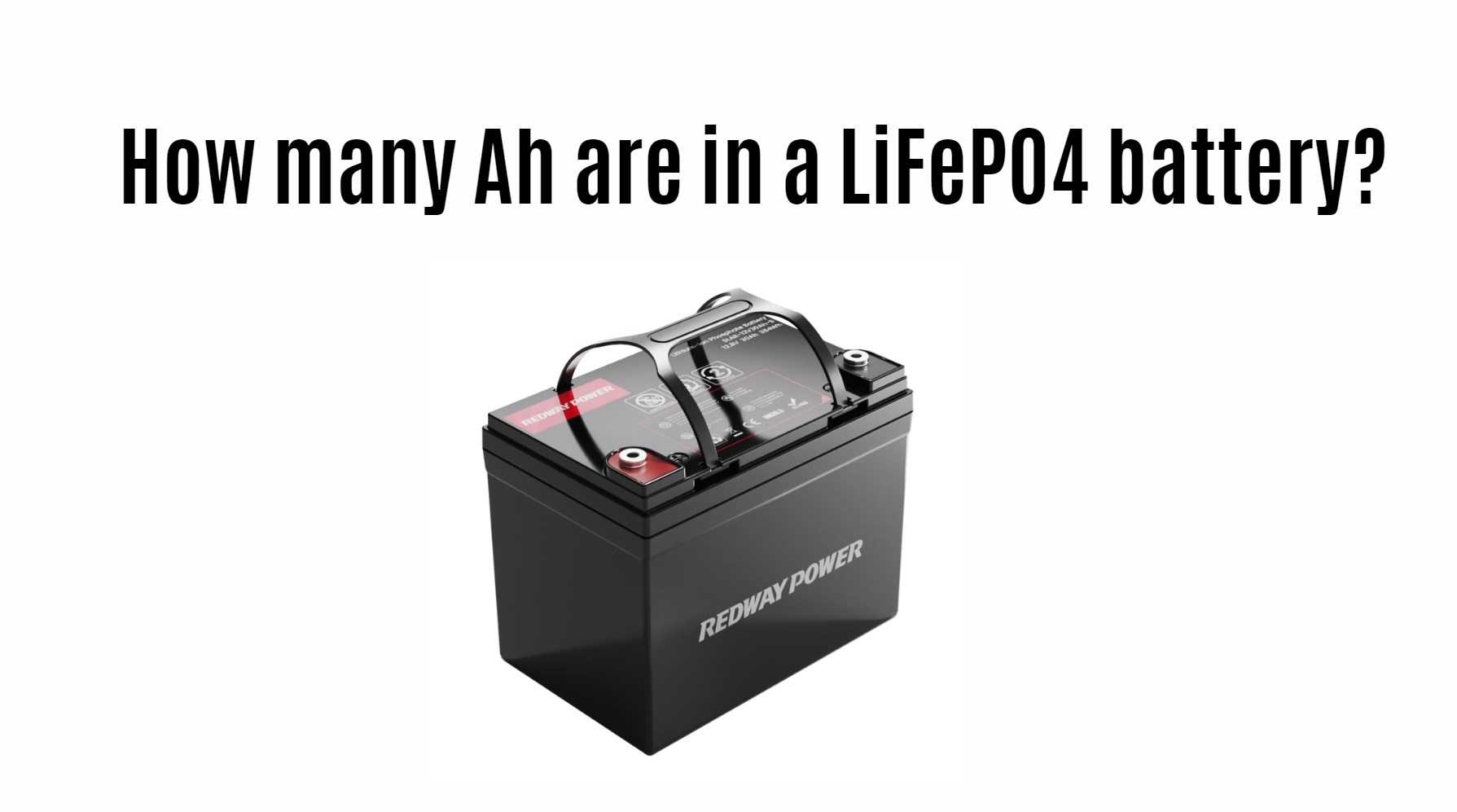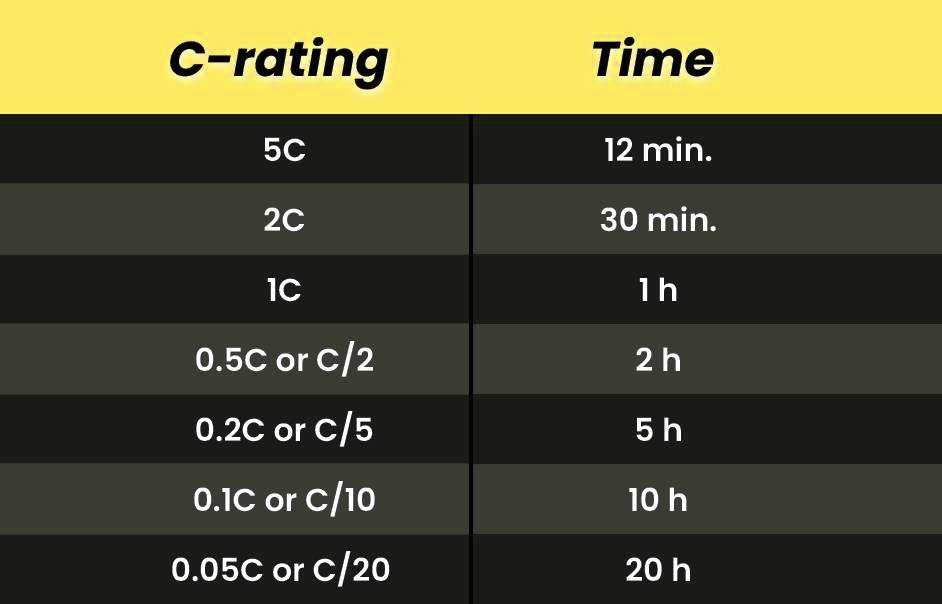When it comes to selecting the right Lithium Iron Phosphate (LiFePO4) battery for your needs, understanding the amp-hour (Ah) rating is crucial. The Ah rating indicates the battery’s capacity to store energy and is a key factor in determining how long a battery can power a device before needing to be recharged. In this article, we will explore what Ah means in the context of LiFePO4 batteries, how to determine the appropriate capacity for your application, and the advantages of using LiFePO4 technology.
1. Understanding Amp-Hour (Ah) Rating
1.1 What is Amp-Hour (Ah)?
The amp-hour (Ah) rating of a battery measures its capacity to deliver a specific amount of current over a defined period:
- For example, a battery rated at 100Ah can theoretically provide 100 amps of current for one hour, or 50 amps for two hours, and so on.
1.2 Importance of Ah Rating
The Ah rating is essential for:
- Determining Runtime: Knowing the Ah rating helps you estimate how long your battery will last under various loads.
- Sizing Your Battery System: It assists in selecting the right battery size for your specific energy needs.
2. Typical Ah Ratings for LiFePO4 Batteries
2.1 Common Capacities
LiFePO4 batteries come in various capacities, typically ranging from:
- 12V Batteries: Commonly available in capacities from 10Ah to 200Ah.
- 48V Batteries: Often found in capacities ranging from 50Ah to 300Ah or more.
- 72V Batteries: Available with capacities that can exceed 200Ah, depending on the application.
2.2 Applications and Their Ah Requirements
Different applications require different capacities:
- Solar Energy Systems: A typical solar storage system might use a 48V 200Ah battery to store energy generated during the day.
- Electric Vehicles (EVs): EVs often utilize larger batteries, such as 72V systems with capacities of 300Ah or more, to ensure sufficient range.
| Battery Type | Voltage | Typical Capacity Range (Ah) |
|---|---|---|
| 12V LiFePO4 Battery | 12V | 10 – 200 |
| 48V LiFePO4 Battery | 48V | 50 – 300 |
| 72V LiFePO4 Battery | 72V | 200+ |
3. Factors Influencing Ah Rating Selection
3.1 Application Requirements
The intended application plays a significant role in determining the required Ah rating:
- For instance, high-drain devices like electric motors may require higher capacity batteries compared to low-drain devices like LED lights.
3.2 Usage Patterns
Consider how you plan to use the battery:
- If you need continuous power for long periods, opt for a higher Ah rating.
- If your usage is intermittent, a lower capacity may suffice.
3.3 Depth of Discharge (DoD)
The depth of discharge affects overall battery lifespan:
- LiFePO4 batteries can typically handle deeper discharges (up to 80% DoD) without significant degradation, allowing users to maximize usable capacity.
4. Advantages of Using LiFePO4 Batteries
4.1 Safety Features
LiFePO4 batteries are known for their safety:
- They are less prone to thermal runaway compared to other lithium-ion chemistries, making them suitable for various applications.
4.2 Longevity and Cycle Life
These batteries offer impressive longevity:
- With a cycle life often exceeding 2000 cycles, they provide excellent value over time.
4.3 Environmental Impact
LiFePO4 batteries have a lower environmental impact:
- They contain fewer toxic materials and are easier to recycle than traditional lead-acid batteries.
5. Latest Developments in Lithium Battery Technology
Recent advancements in lithium battery technology continue to enhance performance and safety features:
- Innovations such as smart battery management systems (BMS) allow users better monitoring capabilities.
- Research into solid-state batteries promises increased energy density and improved safety characteristics in future models.
6. Frequently Asked Questions (FAQs)
6.1 How do I determine the right Ah rating for my application?
Consider your power requirements, usage patterns, and how long you need the battery to last between charges.
6.2 Can I connect multiple LiFePO4 batteries with different Ah ratings?
While it’s possible, it’s not recommended as it may lead to imbalances; always use batteries with similar specifications.
6.3 What is the lifespan of a LiFePO4 battery?
With proper care and maintenance, LiFePO4 batteries can last over ten years or more.
7. Conclusion
In conclusion, understanding the amp-hour (Ah) rating is essential when selecting Lithium Iron Phosphate (LiFePO4) batteries for your specific needs. With typical capacities ranging from 10Ah to over 300Ah, these batteries offer flexibility and reliability across various applications. By considering your power requirements and usage patterns, you can choose the right capacity that ensures optimal performance and longevity for your energy storage solutions.At Redway Battery, we specialize in manufacturing high-quality Lithium LiFePO4 solutions tailored to meet diverse customer needs worldwide. With our extensive experience in this field, we provide custom solutions quickly for wholesale and OEM customers. For a quick quote or more information about our products, please contact us today!




